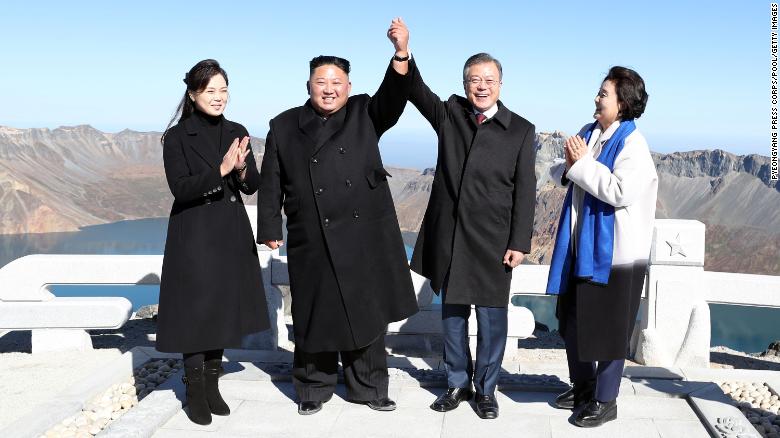Why North Korea wants nothing to do with South Korea
North Korean leader Kim Jong Un had nothing but praise for "the compatriots in the south" at the start of 2019, speaking of "the united strength of the fellow countrymen."
Making predictions about a country as insular and cryptic as North Korea is often ill-advised, but it seems likely that such warmth towards South Korea will be absent in Kim's upcoming New Year's address.
It's a dramatic about-face considering just last year, South Korean President Moon Jae-in was driving in an open top car with Kim Jong Un through the streets of Pyongyang, addressing thousands of cheering North Koreans and visiting the sacred Mount Paektu with Kim, realizing a "long unfulfilled dream," as Moon put it.
But as talks between the North Korea and the United States have faltered, so have inter-Korean relations -- a pattern seen repeatedly through the years.
North Korea has stopped talking or even listening to its southern neighbor in recent months. As things stand, the fledgling relationship between Moon and Kim is on ice. According to Cheong Seong-chang, an analyst at the Sejong Institute in Seoul, Moon is just not "pro-North" enough for Kim Jong Un.

North Korean leader Kim Jong Un and his wife Ri Sol Ju pose with South Korean President Moon Jae-in and his wife Kim Jung-sook on the top of Mount Paektu in North Korea in September 2018
A pro-engagement President
Since Moon took office, his administration has embraced a policy of engagement with North Korea, coaxing an initially reticent US President along with him.
Moon and Kim met four times over the past two years, signing agreements, pledging cooperation and demilitarizing parts of the heavily fortified border that divides the two countries.
However, it appears that was not enough for Pyongyang.
Cheong, the Sejong Institute analyst, said that North Korea believes if Moon's administration was truly pro-North Korea, it "would have stopped the joint US-South Korean military exercises as asked and stopped the import of stealth fighters which can attack North Korea without being detected."
"So in North Korea's view, they are not pro-North at all," he said.
North Korea continuously voiced stern opposition to joint US-South Korean military drills held this year -- though some were scaled down and others were canceled -- as well as Seoul's decision to purchase F-35 stealth fighter jets from Washington. Pyongyang argues the moves are impediment to peace effort and responded by cutting off communication with the South and threatening to freeze Seoul out of nuclear talks with the US.
Officials from either side have never publicly confirmed whether a hotline set up between the two leaders has ever been used. The working assumption is, it has not.
Kim's regime has also rejected offers of humanitarian assistance and refused meet the South Korean Red Cross this year.
"It is very difficult for North Korea to be seen to be cooperative to South Korea or conciliatory," said a South Korean government official.
News Courtesy: www.newagebd.net











